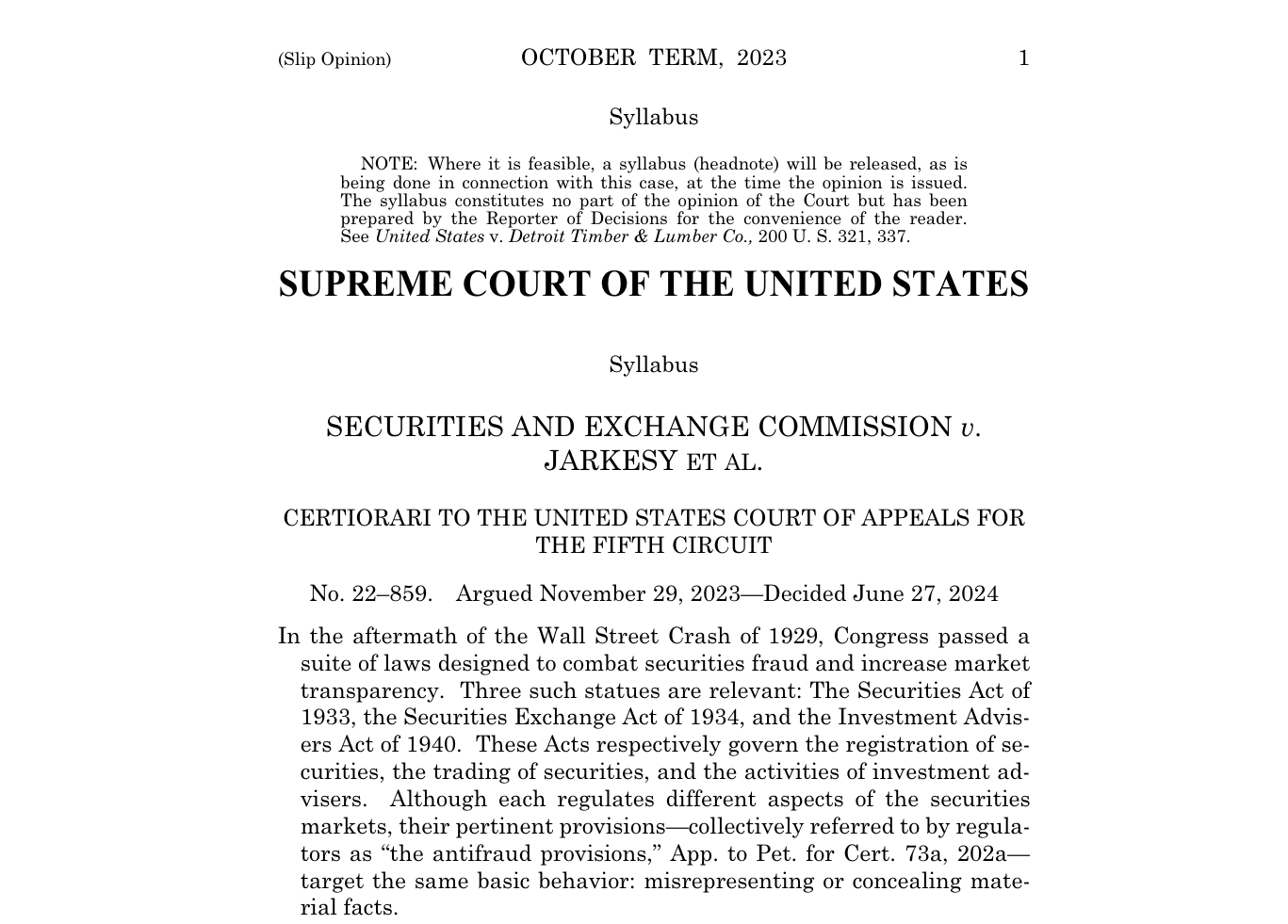Coinbase sues SEC and FDIC for clarity on crypto rules; US Supreme Court limits SEC’s authority in enforcing securities laws
Coinbase filed a lawsuit against the SEC and FDIC, accusing them of unfair prosecution and opaque practices. The US Supreme Court limited the SEC's powers to use securities laws
Cryptocurrency exchange Coinbase has filed lawsuits against the U.S. Securities and Exchange Commission (SEC) and the Federal Deposit Insurance Corporation (FDIC) on Thursday, alleging unfair targeting and opaque practices.
The legal challenges, lodged in the U.S. District Court for the District of Columbia, accuse the agencies of overregulation and failing to respond to Freedom of Information Act (FOIA) requests.
The exchange’s legal action seeks to counter what it views as a concerted effort by the SEC and FDIC to undermine the cryptocurrency sector by restricting access to banking services and withholding information.
Coinbase has criticized the SEC for using privacy claims to conceal its regulatory methods, particularly concerning Ethereum’s proof-of-stake transition and other crypto entities.
The FDIC is similarly under fire for advising banks to halt the expansion of crypto-related services through “pause letters,” a tactic Coinbase likens to the controversial “Operation Choke Point.”
Coinbase’s dispute with the SEC also includes a previous lawsuit from April 2023, where the exchange demanded a definitive stance on crypto-specific regulations.
Despite discussions since July 2022, the SEC has yet to provide clear guidelines, opting to enforce existing securities laws that Coinbase argues are ill-suited for cryptocurrencies.
US Supreme Court limits SEC’s authority in enforcing securities laws
The US Supreme Court has limited the Securities and Exchange Commission’s (SEC) authority in enforcing securities laws. In a 6-3 decision, the court determined that the SEC’s use of in-house judges to adjudicate cases violates the constitutional right to a trial by jury.
This case is one of several on the docket involving conservative and business-led challenges to the power of federal agencies. The court’s 6-3 conservative majority has often been sympathetic to such arguments.
The challenge specifically targeted how the SEC enforces securities laws, including prohibitions on insider trading.
Traditionally, the SEC has used in-house proceedings overseen by administrative law judges, but it can also pursue cases in federal court, seeking financial penalties in both venues.
Hedge fund manager challenges SEC
The dispute started with hedge fund manager George Jarkesy, who was accused by the SEC of breaking securities laws by lying and hiding important information from investors while managing two hedge funds.
The SEC’s in-house judges fined Jarkesy and his firm $300,000 and ordered them to return nearly $685,000 of what the SEC called “illicit gains.” Jarkesy was also banned from certain roles in the securities industry.
Jarkesy argued that the SEC’s in-house process was unfair and violated his rights. His fight against the SEC got support from billionaires Elon Musk and Mark Cuban.
The New Orleans-based 5th Circuit U.S. Court of Appeals ruled against the SEC, prompting the agency to ask the Supreme Court to step in.
The Supreme Court decided that people accused of fraud by the SEC now have the right to a jury trial in federal court. Chief Justice John Roberts, speaking for the court’s conservative majority, said:
“A defendant facing a fraud suit has the right to be tried by a jury of his peers before a neutral adjudicator.”
This means the SEC can no longer use in-house judges for these cases. Justice Sonia Sotomayor disagreed with the decision. She said it would be celebrated by those wanting to dismantle the administrative state.
Joined by Justices Ketanji Brown Jackson and Elena Kagan, Sotomayor argued that many federal agencies rely on in-house proceedings to impose civil penalties. She wrote:
“For those and countless other agencies, all the majority can say is tough luck; get a new statute from Congress.”






